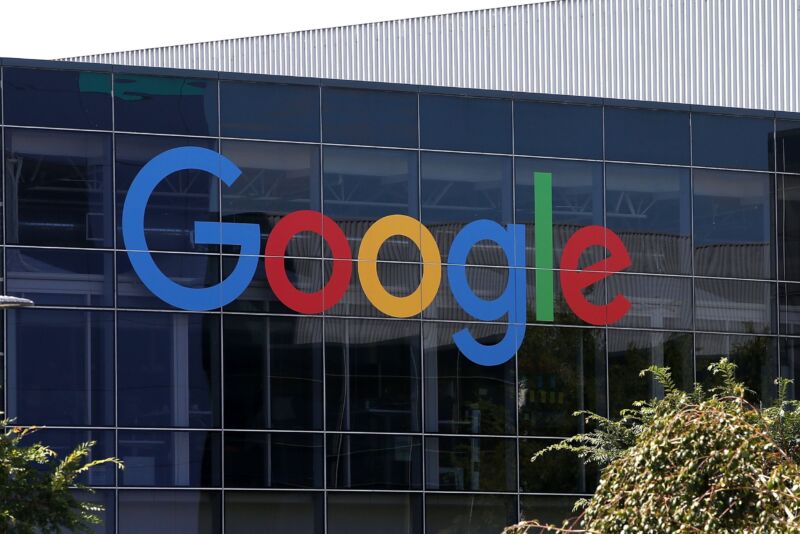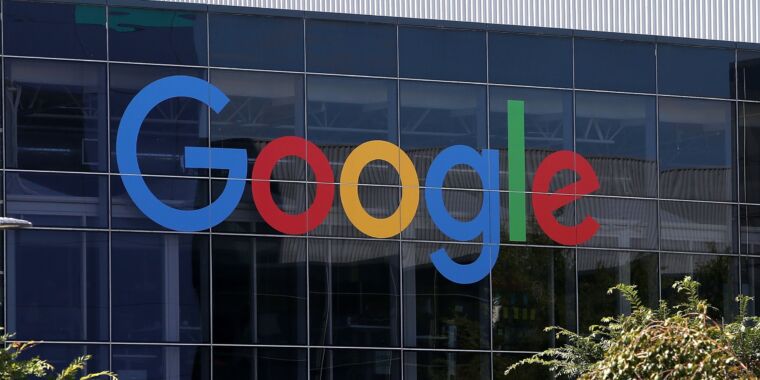
Getty Images | Justin Sullivan
Google cannot be held liable for defamation simply for providing hyperlinks to other webpages, Australia’s highest court ruled today. By itself, providing a URL is not “participation in the communication of defamatory matter which happens to be at that address… In reality, a hyperlink is merely a tool which enables a person to navigate to another webpage,” the High Court of Australia ruling said.
The case relates to a Google search result that linked to a 2004 article published by The Age with the title, “Underworld loses valued friend at court.” The article described Melbourne-based lawyer George Defteros, who was charged with conspiracy to murder and incitement to murder the day before it was published. The charge was withdrawn in 2005.
Defteros sued Google after becoming aware that a Google search of his name produced a link to the article and a snippet. Google refused to remove the article from search results despite a request from Defteros in 2016.
A lower-court judge “found that the Underworld article conveyed a defamatory imputation, namely that the respondent had crossed the line from being a professional solicitor to being a confidant and friend of criminal elements,” today’s ruling noted. Lower courts decided that Google “published the defamatory matter because the provision of the Search Result was instrumental to the communication of the content of the Underworld article to the user, in that it lent assistance to its publication,” according to a summary of today’s ruling provided by the High Court of Australia.
Google had been ordered to pay Defteros $40,000 (about $27,710 in USD). But in reversing lower-court rulings, a 5-2 majority of the High Court found that Google did not publish the defamatory matter.
Hyperlink “merely facilitated access”
Google “did not lend assistance to The Age in communicating the defamatory matter contained in the Underworld article” because the “provision of a hyperlink in the Search Result merely facilitated access to the Underworld article and was not an act of participation in the bilateral process of communicating the contents of that article to a third party,” the summary of the ruling said. “There was no other basis for finding publication because the appellant had not participated in the writing or disseminating of the defamatory matter.”
Defteros did not sue The Age for defamation, but he did sue the article’s author over a book that contained a chapter based on the article. The case was settled in mediation, resulting in changes to the book.
Today’s ruling could have been different if Google had been paid to promote The Age article. The appeal “does not present the occasion to consider whether the conclusion would be different in respect of those hyperlinks that, by agreement with a third party, are promoted by the appellant following a search request,” the ruling said. “Nor was any issue raised on this appeal about any service provided in the aggregation of news results. It suffices to say that it is arguable that the appellant and a third party might share a common intention to publish the content of a third-party webpage that, as a consequence of an agreement between the appellant and the third party, is promoted as a search result.”
In the US, Section 230 of the Communications Decency Act says, “No provider or user of an interactive computer service shall be treated as the publisher or speaker of any information provided by another information content provider.” While there have been calls to change the law, the Electronic Frontier Foundation says Section 230 “has allowed innovation and free speech online to flourish” by protecting online intermediaries that host or republish speech against “laws that might otherwise be used to hold them legally responsible for what others say and do.”








